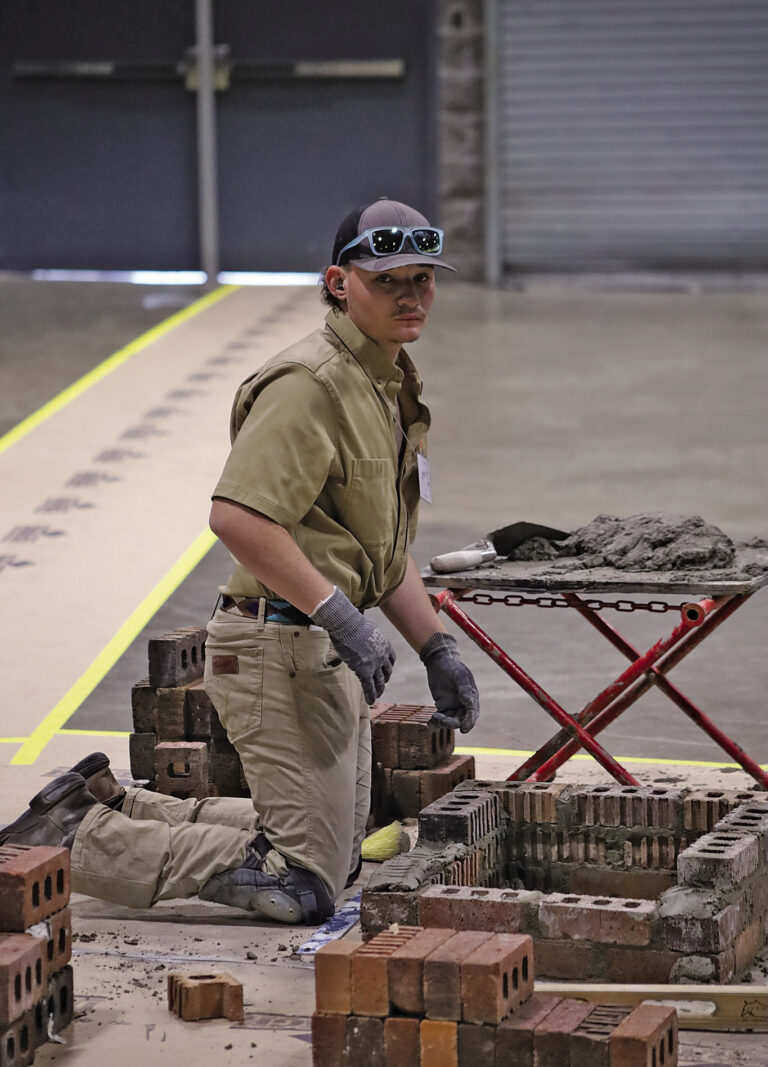Editor’s Note: Quotations of written material in this report have not been edited for spelling.
Rachael Moyer became the newest member of the Eureka Springs City Council on Monday, Feb. 10.
With a vacancy in the council’s Ward 1, Position 1 seat, the other five council members chose Moyer from among four applicants. Moyer was selected in a ranked choice voting process and was announced as the winner after Mayor Butch Berry originally announced that Ginese Colletti had won the council seat.
Council members were asked to rank the four candidates on paper ballots, which read: “Please number each canditate 1-4 in order of preferance with 1 being most favoritable and 4 being least favorable.”
Council members Terry McClung, Susane Gruning and Steve Holifield ranked Moyer first on their ballots, while council member David Avanzino ranked Teri Wolfenbarger as his top choice and council member Harry Meyer ranked Colletti first. Their rankings were not announced during the meeting, but the Times-Echo obtained copies of the ballots through an open-records request.
Mayor Butch Berry suggested early in the meeting — after the roll call, approval of the agenda and approval of minutes from the council’s Jan. 27 meeting — that the council go into executive session to discuss the vacant seat.
The council remained in executive session for approximately 20 minutes. After the council voted to adjourn the executive session and resume its open meeting, Berry announced that no decision was reached during the executive session. McClung made a motion to nominate Moyer for the vacant seat but did not receive a second. Berry said he would like the council to decide on the method for choosing someone to fill the seat.
“I’d like to decide whether or not we want to do a ballot or have a ranked system,” Berry said.
After Holifield asked for an explanation of the ranked system, city clerk treasurer Ida Meyer said that each council member would rank the four candidates from 1 to 4, with 1 being their top preference to fill the seat.
“Whoever has the most No. 1 votes, obviously, would get it off the bat,” Ida Meyer said. “If there’s not a quorum with No. 1 votes, then we go to the second tier, so whoever was voted second most favored. And then if we have a quorum from there, that’s who wins. If not, we go to the third and fourth tiers.”
Harry Meyer then made a motion, with a second from Avanzino, to use ranked choice voting. On a voice vote, the motion was approved 4-1, with McClung voting no.
Council members then made their selections on the written ballots. Gruning, who was participating by phone, relayed her selections to Ida Meyer.
After the ballots were completed, Ida Meyer and Berry reviewed them for several moments before Berry announced that Colletti would be the new council member.
“Did she get four No. 1 picks?” McClung asked.
Both Berry and Ida Meyer answered: “No.”
“Right, so I don’t get it,” McClung said.
“Do you want to switch to regular ballot, then?” Ida Meyer asked.
“Well, I mean, I don’t understand how that works,” McClung replied. “It just doesn’t make sense to me.”
“Nobody got four No. 1s,” Berry said.
“Then how can they be elected, if they haven’t got four …?” Mc-Clung said.
“Nobody got four No. 1s,” Berry repeated.
“Then, that doesn’t make sense to me,” McClung said.
“It’s by ranked choice,” Ida Meyer said. “So, no one got the majority No. 1 votes. So it went to whoever got the most No. 1 and the most No. 2 votes.”
McClung chuckled at Ida Meyer’s explanation and Avanzino asked Ida Meyer if ranked choice voting was a “recognized standard of voting.”
“It’s in some states and cities recognize this voting platform,” Ida Meyer answered.
‘DOES THAT MAKE SENSE?’
Berry then called on city attorney Forrest Jacobi.
“On ranked choice voting, everybody, you’ve got four candidates, you put down your vote — 1, 2, 3, 4,” Jacobi said. “The person you don’t like, you put 4. The one you like is 1. And you count the votes. If nobody has the majority votes, then whoever had the fewest No. 1 votes is scratched. “But, the No. 2 votes for that person — whoever voted for that person, whoever they voted their No. 2, now counts into the total. If you still don’t have a majority, you scratch out the third place. Then you should be able to decide between the top two, whoever got the most No. 1s after you scratch the ones who did not get elected. Does that make sense?”
“Quite frankly, I’d appreciate it if you’d explain that one more time,” McClung said. “I’m not sure I got that either.”
“OK,” Jacobi replied. “You’ve got 1 through 4. Everybody votes 1 through 4 on the candidates. If no one gets a majority vote, on the first ballot, then whoever got the fewest No. 1 votes, they’re eliminated. However, everybody who voted for that person for No. 1, their No. 2 choice is now added back into the top three, looking for a majority vote. If nobody has a majority vote again, then you scratch out the No. 3 person, and then their No. 2 gets added back in and then, as soon as somebody gets a majority, that’s over.”
“OK, I think I understand that,” McClung said.
“Would you like the breakdown of …” Ida Meyer began.
“Is that …?” Berry interjected. “Forrest, come over here, and get the legal opinion here.”
“Do we just want to do a ballot vote?” Gruning asked.
“Nah, let’s figure this one out first,” Berry replied.
Jacobi and Ida Meyer then spent several moments discussing the ballots before Jacobi returned to his seat. Ida Meyer continued reviewing the ballots, then asked Jacobi to join her again.
After several more moments, Berry said: “During this ranked order, this is the first time I’ve gone through this, and evidently I was, with the help of our illustrious city attorney, it looks like Rachael will be the new city council person. So I apologize, Ginese, for saying that you’re the one first, but after going through this, Rachael received the majority of the No. 1 votes on there.”
‘NOT A PROCESS THAT I FAVOR’
“I would just like to say that I would like to get some clarification from the state on how to do this if it ever happens again,” Mc-Clung said, “because — and I’m happy with the results because I was nominating her anyway, but it just … I don’t know. It just, it seems like they should be getting four votes and that’s just what it’s required, but I understand it’s a different process. It’s not a process that I favor. That’s all.”
“I don’t think that we’ve ever done it this way before, as far as I know,” Berry responded.
At Berry’s suggestion, the council voted to take a five-minute recess. Moyer was sworn in by Berry during the recess and joined the council for the remainder of the meeting.
The council used rank choice voting to fill two vacant council seats in March 2024, when it appointed Avanzino and Gruning. Both received four No. 1 votes for their respective positions from the four sitting council members at that time.
Section 14-43-401 of the Arkansas state code outlines the procedure for filling a vacant city council seat.
“Whenever a vacancy occurs in the office of council member in a city of the first class having a population of less than twenty thousand (20,000) according to the most recent federal decennial census, at the first regular meeting after the occurrence of the vacancy, the city council shall proceed to elect by a majority vote of the remaining members elected to the council a council member to serve for the unexpired term,” the code says.
REASON FOR VACANCY The city council had declared the vacancy after Michael Welch, who ran unopposed for the seat in the November 2024 general election, announced that he would not serve. Welch, who sits on the city’s planning commission, said at a Dec. 10 commission meeting that he wanted to devote more time to that position. He later acknowledged that he had been contacted by the Carroll County prosecuting attorney and advised that he was ineligible to sit on the city council because of a felony conviction in California. That conviction, which Welch described as a felony marijuana charge, occurred in 1975, when he was 18 years old.
The next regular meeting of the Eureka Springs City Council is scheduled for 6 p.m. Monday, Feb. 24, in the basement of the Auditorium.
— Mayor Butch Berry


